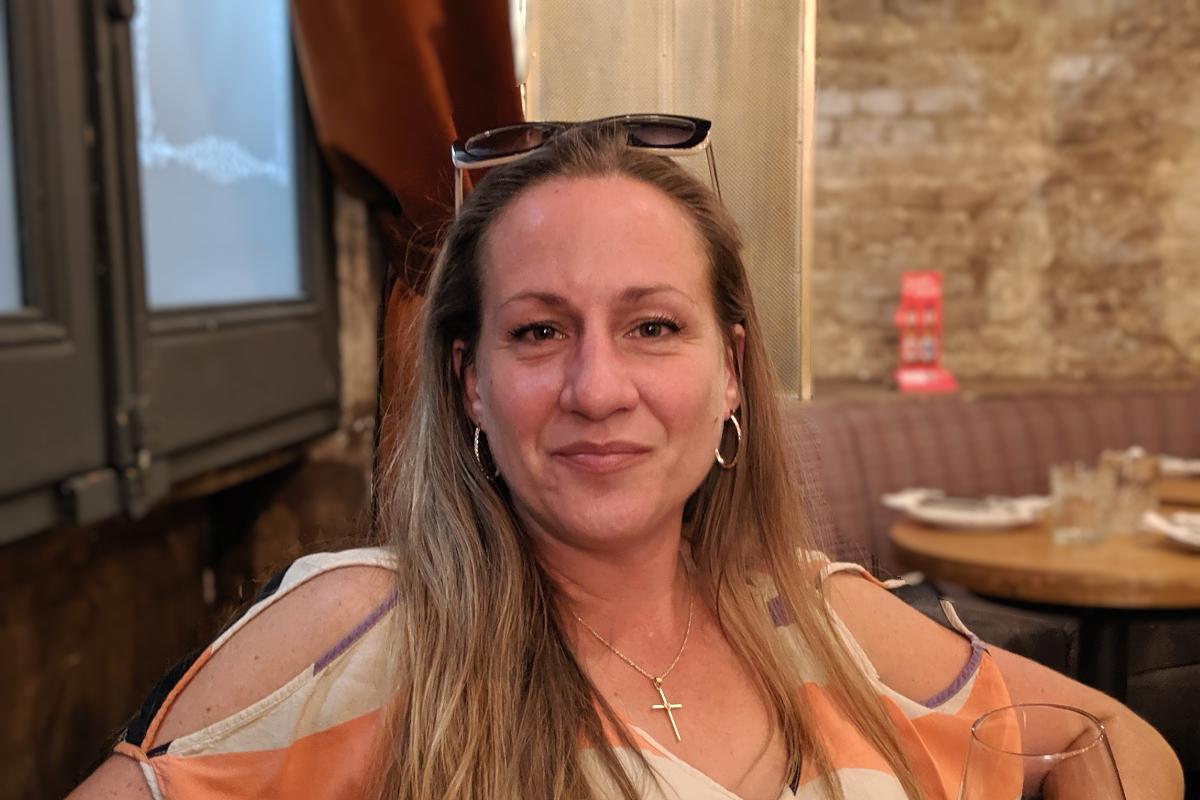Following the Career Path of a Social Worker

On paper, the career path of a social worker is pretty straightforward. Applicants go to school to get their Bachelor’s degree in social work, they do an internship in the community, and if possible, they go on to get their Master’s degree in social work and begin their career.
However, there are many different types of social work, which leads to each applicant to follow their own unique social work career path. Today, we’ll follow former social worker and current Crossroads Hospice & Palliative Care Support Services Director Jeanne Morrison through her personal career path as a social worker.
The Career Path of Social Worker Jeanne Morrison
“After high school, I had no idea what I wanted to do,” she begins. “I spent some time at community college and worked full time in retail. I knew I wanted to have a career and my dad told me to try to think about the person I would be when I retired and what work I would be proud of.”
It was great advice – and Jeanne soon decided she wanted to help people as a social worker.
“Originally my goal was to work with abuse survivors,” Jeanne confesses. “But from beginning my social work degree to graduation, life happened. I had two kids, and my focus shifted. When I went for my interview for my Masters internship, I was interviewing for two different programs and my interviewer told me that hospice would be the right fit for me, so I went with them.”
When Jeanne joined that program, she didn’t know much about that hospice was. But she grew to love it and found it to be a true calling for her. She knew that’s where her future should be – but there were still a few twists along the way.
“Most hospices at that time wouldn’t hire someone right out of school. So when I graduated, I took a job working in child welfare,” she shares. “Luckily, within a year, a position opened at the hospice I had interned with and I was happy to take it.”
Starting a Career as a Hospice Social Worker
Jeanne worked for this hospice in Queens, NY for five years. It was one of the most diverse communities in the country. She worked with an incredible team, doing visits alongside nurses, chaplains, and MDs.
“Because so many of our patients were 1st and 2nd generation immigrants, they needed a lot of education about hospice care and informed consent because different cultures approach this in their own way,” she explains. “A lot of cultures focus on familial decision making over individual choice. I used a language line on 50% of my visits and was very comfortable working around that obstacle to provide the education they needed.”
This hospice had a large number of pediatric patients.
“It was terribly sad,” Jeanne says. “Again, most of my patients were 1st and 2nd generation Americans, so I had to be sensitive to their practices. I remember one family who were Korean by way of Russia, and a popular alternative treatment for them was using kerosene as a therapy. Our team worked with them to ensure that the treatment that was so important to them would be complementary and not contradictory to the treatments we were providing.”
In her role as a hospice social worker serving a diverse community, she truly learned to meet people where they were.
“I really learned the importance of breaking bread. I had a lot of meals with families which broke the ice.”
In 2014, Jeanne’s family moved to Pennsylvania, and she interviewed with Crossroads as a bereavement coordinator.
Thinking back on that moment, Jeanne says, “I really believe that things happen when they are supposed to, and the timing was just right for this. I was interested in working on the other side of someone’s life and supporting their family after they had passed away.”
After several years as a bereavement coordinator, Jeanne was promoted to a new role as the Support Services Director, overseeing the social workers, chaplains, bereavement coordinators, and volunteer managers.
“I love the opportunity to support a team that’s doing such important work. I want to make sure the experts have what they need to be able to do their jobs.”
This role is an office-based position, so Jeanne doesn’t get out in the field as much as she used to.
“I do miss it,” she says, “but fortunately, I have one patient I’m working with right now because it made sense for me to do it and the patient and their primary caregiver clicked with me. But it’s give and take. I miss the rich experience of hospice social work, supporting the bereaved, and running grief support groups. But I’m grateful to have had that background and insight into what the team is doing.”
Every social worker at Crossroads has a unique story and unique career path as a social worker, but they share the common bond of a calling to support patients and their families at end of life. To learn more about how the Crossroads hospice team supports patients, please call 1-888-564-3405.
If you found this information helpful, please share it with your network and community.
Copyright © 2020 Crossroads Hospice & Palliative Care. All rights reserved.




